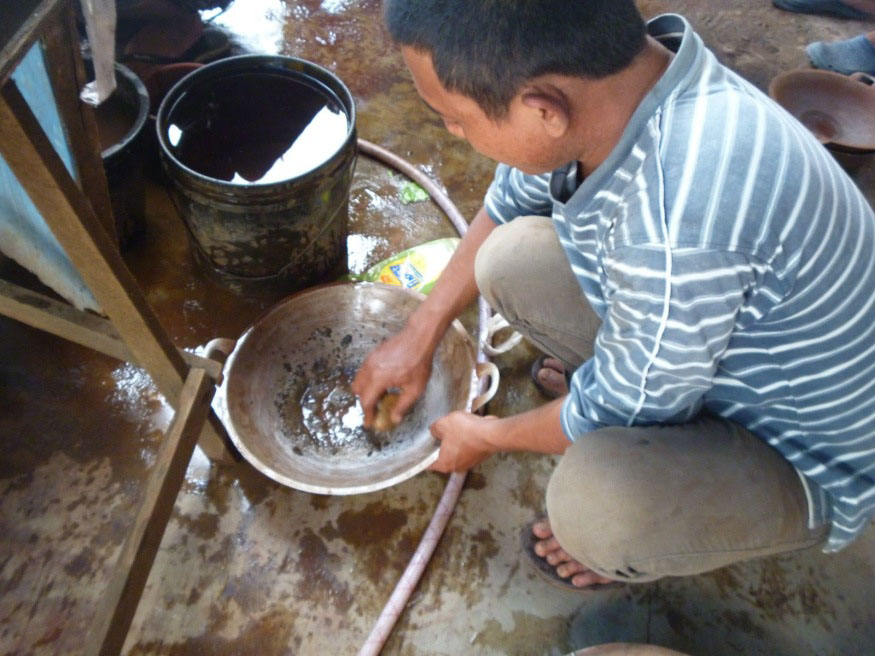Guyana is one of eight gold-producing countries that will be partnering with several international agencies in a new US$180 million Global Environment Facility (GEF) – backed initiative targeting the long-term development of the artisanal and small-scale gold – mining (ASGM) sector and aimed at improving conditions for miners while slashing harmful mercury emissions.
The other participating countries are Burkina Faso, Colombia, Indonesia, Kenya, Mongolia, the Philippines and Peru.
The five-year programme will also embrace additional partners, including the United Nations Environmental Programme (UNEP), the United Nations Development Programme (UNDP), the United Nations Industrial Development Organization (UNIDO), Conservation Inter-national (CI) and the private sector, in an initiative which a Monday, February 18 news story said is aimed at promoting “compliance with international standards on responsible mineral supply chains.”

The initiative, the UN disclosure says, is unfolding against the backdrop of continued exposure of millions of “men, women and children globally to toxic levels of mercury every year.” Titled “global opportunities for the Long-Term Development of the artisanal and small-scale gold mining sector (ASGM), the programme, the UN story says, will improve conditions for miners across the eight participating countries while reducing harmful mercury emissions.
Artisanal and small scale gold mining accounts for twenty per cent of global annual gold-mining and is the single largest source of man-made mercury emissions, responsible for releasing as much as one thousand tonnes of mercury into the atmosphere every year. An estimated fifteen million people work in the artisanal and small scale gold mining sector, including 4.5 million women and over six hundred thousand (600,000) children, the UN says.
The report quotes Jacob Duer, Head of UNEP’s Chemicals and Health Branch as saying that “by phasing out mercury use and connecting miners to markets for responsibly produced and sourced minerals, GEF GOLD will help to ensure the gold value chain both supports miners and provides consumers with access to ethically produced, environmentally sustainable gold.”
The UN report has also pointed to the dangers accruing from environmentally unsustainable gold production, a phenomenon which it says persists “to sate the appetite for gold, for jewelry, investment and consumer goods” against the backdrop of harsh working conditions in which miners and processors “often work in harsh conditions without industry protection on pay health or safety, with many relying on toxic, mercury-based methods.” The report alludes to “studies” which it says indicate that mercury exposure through unsafe mining practices “is a major, largely neglected global health problem that put miners and their communities at risk of brain damage, vision and hearing loss and delayed childhood development”. In Guyana, among other developing countries, while artisanal and small scale gold mining offers significant employment and support for many families, miners frequently operate on the edge of legality, polluting waterways, compromising food chains and creating widespread environmental damage. With the global lobby for the outright banning of artisanal mining growing increasingly boisterous, the UN-driven initiative, titled GEF GOLD, seeks to “secure miners’ livelihoods by supporting regulatory and policy reforms across the participating countries, opening market and finance access to increase incomes and enable mercury-free technology,” the report says.





